- Saturday, 26 April 2025
I'm committed to work with integrity: Chaudhary
Gadhi Rural Municipality in Sunsari district of Koshi Province, is a local level connected to the district headquarters, Inaruwa. This Tarai rural municipality consists of six wards. It was formed by merging four former village development committees: Madheli, Aurawani, Chhitaha and Saterjhoda.
Ashnarayan Chaudhary, elected from the CPN (UML) in the 2022 local elections, serves as the chairperson of the rural municipality. In an interview with our Inaruwa correspondent, Jaya Krishna Yadav, he shared the development activities carried out in the rural municipality since his election. Excerpts:
How much of your election commitments have been fulfilled?
The commitments I made to the people during the election are gradually being fulfilled, some have been completed while others are in progress. I have consistently worked on infrastructure development, agriculture, health, education, youth employment, tourism and other sectors as promised.
In terms of infrastructure, we have been upgrading unpaved roads by blacktopping them and improving drainage systems. Over the past three years, we have upgraded seven kilometres of gravel roads to blacktop one in the first year and five kilometres in the second year. This year, we are blacktopping 10 kilometres.
As nearly 70 per cent of our residents depend on agriculture, we have implemented various programmes to boost production, including paddy and maize pocket programmes. Farmers are provided with training, agricultural tools, fertilisers and high-yield seeds at a 50 per cent subsidy. We are transitioning farmers from subsistence farming to commercial agriculture by promoting mechanisation. Additionally, local market access has been enhanced through the management of weekly markets
To support agricultural productivity, we have introduced underground water pump sets, tube well boring systems and modern ploughing equipment. In Ward No. 1, a maize pocket programme has been launched while Ward Nos. 3 and 4 are implementing paddy and maize zone programmes.
How is your experience as chairperson in three years in office?
Upon taking office, all elected representatives, including myself, were highly motivated and eager to work. However, due to limited resources and budget constraints, progress has been slower than expected. Nevertheless, I am satisfied with the work accomplished so far. Initially, I had concerns about challenges due to my non-political background, but the support of locals and municipal staff has made governance relatively smooth.
What improvements have been made in education and health sectors?
Before my tenure, the primary health centre in Saterjhora was in poor condition, almost empty. Since taking office, we have ensured the availability of doctors, free medicines and maternity services. Although some schools still face a shortage of subject-specific teachers, we have managed the issue through internal adjustments.
Additionally, we have partnered with Itahari Eye Hospital to provide specialised eye care services. We have also coordinated with hospitals to conduct regular health camps. The municipality has been declared fully vaccinated, ensuring essential immunisation for children.
In the education sector, we have introduced technical courses at Saraswati Secondary School in Aurawani and started Grade 11 classes at Janata Secondary School in Saterjhoda. We have also ensured proper teacher allocation based on student numbers in both basic and secondary schools. Efforts have been made to improve both physical infrastructure and the learning environment in community schools.
Furthermore, regular nutrition assessments are conducted for children under five years old and various programmes have been implemented to reduce malnutrition. We have also initiated the process to operationalise a previously stalled 15-bed hospital within a year. Currently, all six wards have well-equipped health centres with medical personnel providing regular services, treatment and free medicine distribution.
What initiatives have been taken for livestock farmers?
We have introduced various programmes to support livestock farmers including the distribution of improved breeds of goats, artificial insemination for cows and buffaloes, sterilisation programmes, veterinary medical services and minor surgical procedures. Additionally, vaccination programmes for PPR (Peste des Petits Ruminants), foot-and-mouth disease, classical swine fever and rabies have been conducted.
What physical infrastructure projects have been undertaken in underdeveloped area?
Every year, we construct five kilometres of blacktopped roads and 10 kilometres of gravel roads. Under a donor-assisted safe housing programme, 20 houses have been built and are in the process of being handed over to Musahar and Dalit landless families.
Additionally, we are constructing ward office buildings, expanding the municipality's administrative building, and developing early childhood development centers to enhance access to education.
How sustainable is the municipality's internal revenue?
As a rural municipality, our internal revenue sources are limited. The main sources of revenue include weekly market leasing, property taxes, industrial taxes, rental income and business taxes. However, these revenue streams remain relatively low, making financial sustainability a challenge.
What challenges have you faced in municipal governance?
One of the major challenges in Gadhi Rural Municipality is political opposition. Instead of focusing on development, some individuals engage in baseless accusations, misinformation campaigns on social media and political revenge. These factors create obstacles in governance and slow down developmental activities. However, I remain committed to working with honesty and integrity.
How do you address the concerns of Dalits, landless and economically disadvantaged citizens?
A significant portion of our municipality's population belongs to Dalit, underprivileged and economically disadvantaged communities. To support their upliftment, we have introduced safe housing programmes and other social assistance initiatives.
Various awareness campaigns, such as gender violence reduction programmes, International Women's Day celebrations and child marriage prevention programmes, have also been conducted.
Finally, is there anything else you would like to add?
As per our election commitments, we have been providing emergency assistance to economically disadvantaged, disabled and marginalised community members in times of medical need. I sincerely appreciate the support and cooperation of all residents who entrusted me with their votes.
How did you feel after reading this news?



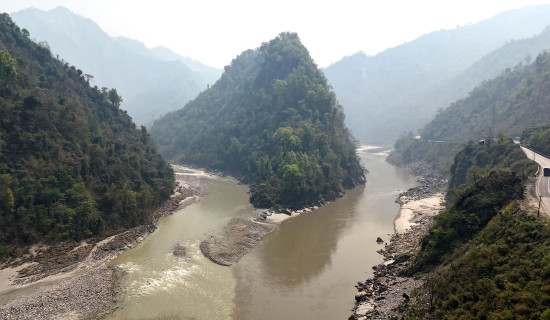
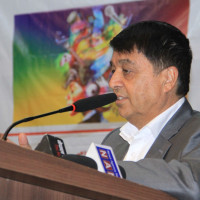
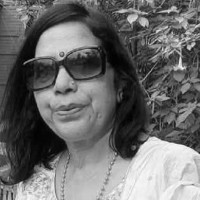
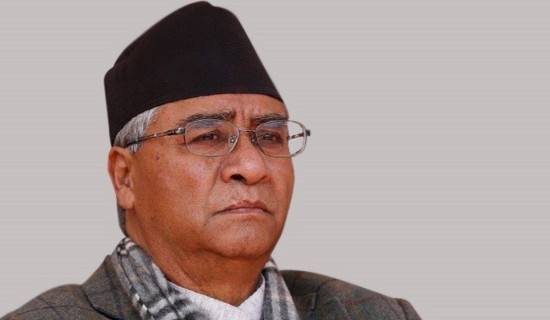
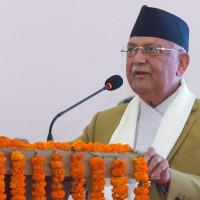
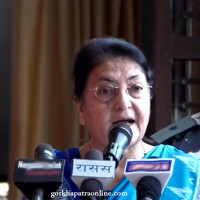
-original-thumb.jpg)






